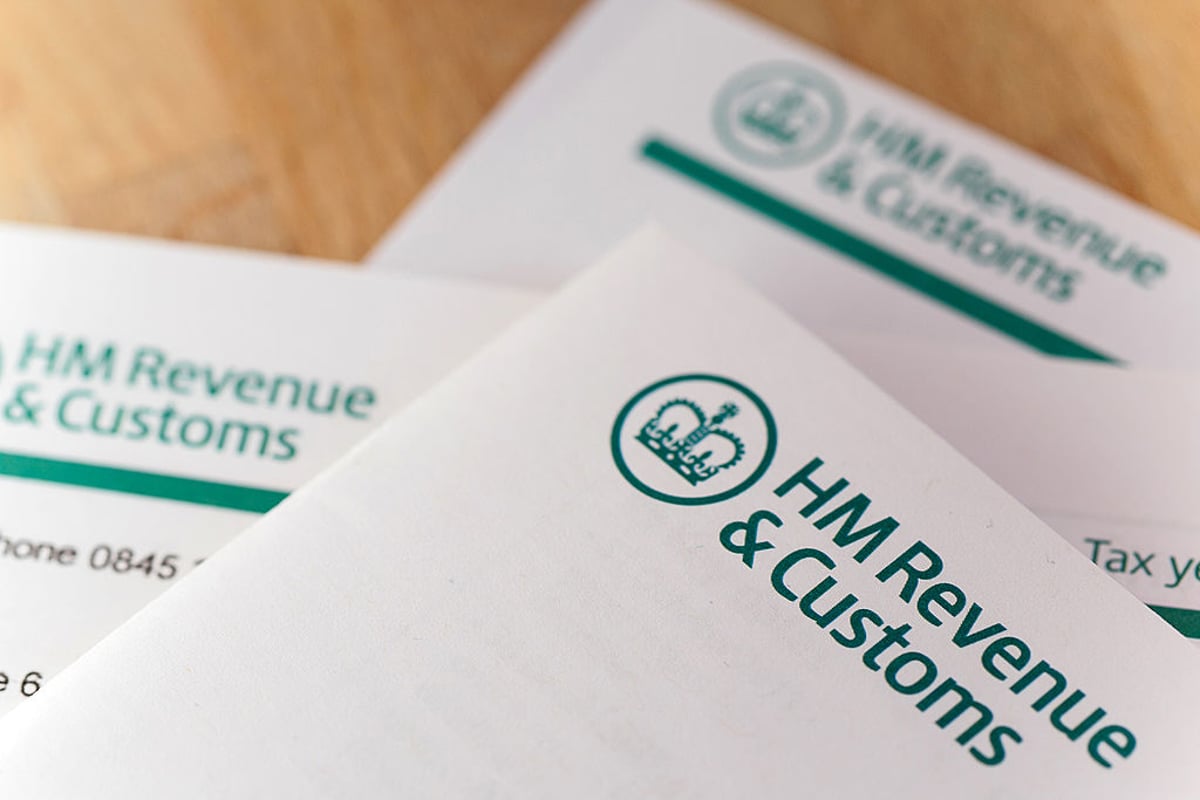Following the extension of Making Tax Digital (MTD) for VAT to all businesses in April 2022, the next two stages of MTD are due to be phased in over the next four years.
That might sound like you have plenty of time to prepare, but as Lois Laughlin, Product Marketing Manager at Sage, tells us, there’s no time like the present to start adopting digital record keeping.
We discuss how the changes will affect the daily running of your business and get some top tips on best practice for the next phases of MTD.
What are the next stages of Making Tax Digital?
“The next stage is April 2024, MTD for Income Tax Self Assessment (ITSA), which will impact all unincorporated businesses and landlords with an annual business income of more than £10,000. Partnerships will then be included from April 2025 but only general partnerships or those with individuals as partners.”
“We know this is going to be a significant change to habits and behaviours for small businesses and how they work with their accountants. The fundamental change for all MTD, including MTD for ITSA is the need to sign up, maintain digital records, and then submit MTD compliant returns digitally to HMRC via a compatible accounting solution.”
“Finally, MTD for Corporation Tax, which has been going through a consultation phase, will be mandated no sooner than April 2026, with a proposed pilot to start around April 2024.”
How will the next phases of MTD impact small business owners?
“As small business owners will be required to keep digital records, the annual self assessment tax return that they do today will be replaced with periodic updates, which have to be submitted at least quarterly, an end of period statement based on those updates, and then a final declaration that effectively replaces the current SA100 tax return.”
“Looking at feedback from MTD for VAT, most business owner’s fears and concerns were about changing habits and behaviours from what they were used to and comfortable with. But those attitudes changed. Some businesses have reported wider productivity gains, reductions in errors, and those that adopt compatible digital software solutions have seen an improvement in working practices, saving time by eliminating manual processes, and has given them time back to focus on their business.”
“Overall, small businesses are reporting feeling much more confident and happier that they made the change. For the majority of people, tax will be easier to get right and harder to get wrong.”
The next changes are a long way off. How can small businesses prepare for upcoming changes?
“Now is the best time to start thinking about how you currently keep your records, the complexity of your tax affairs, and the timing of when you need to start complying – whether you plan to do it yourself or work with an accountant or bookkeeper.”
“Best advice would be to start planning transition sooner rather than later. If you do work with an accountant or a bookkeeper, it’s important to have those conversations and discuss how MTD will impact you and the way you tackle tax together.”
“It’s also worth noting from a small business perspective that your accountant will have many clients to support through the process, and for them, to ensure that everyone is ready and confident well ahead of the deadlines, they need to start having those conversations so it doesn’t bottleneck. They will want to ensure they have enough time to provide high standard support to every client.”
“And for your own benefit, in being able to gain the confidence to deal with MTD, it’s essential to get set up sooner rather than later, making sure that the relationships you have, the terms of engagement with your accountant or bookkeeper are agreed, and that you have your new processes and workflows in place. Do it because there’s value in doing so for you and your business, not just because HMRC says you have to.”
How can accounting software like Sage help to prepare for the subsequent stages of MTD?
“Digital bookkeeping gives you access to your records in real time, which gives you a live relationship with your accountant or bookkeeper, and shows you your financial position visually at a glance.”
“For example, you will be able to see estimated income tax liability at least at the of each quarter and plan accordingly. You can also audit your income and expenditure and review it on a timely basis rather than doing it six months after the tax year ends, which is what most people do currently. All submissions to HMRC to keep you compliant will be much easier and significantly quicker.”
“With digital bookkeeping solutions from Sage, you’re reducing, if not eliminating, manual paperwork and getting a much greater level of accuracy. No more fumbling through plastic bags full of receipts and trying to figure out a tax calculation from it”
“Keeping track of funds is something that small businesses who don’t do regular accounting struggle with. That can lead to not having your finger on the pulse of your cash flow, and you end up spending a lot of time figuring out your finances. With digital bookkeeping solutions, you always have a clear picture to hand. A lot of people think ‘bookkeeping and accounting is not my area of expertise, I don’t want to do it or I’m fearful of getting it wrong’. But actually, adopting digital record keeping gives you more visibility, more confidence, and you get back a lot of time to focus on what you are good at and to develop your business.”
“Those less comfortable with the idea of sitting at a computer can adopt a mobile first approach to capture and categorise everything in the moment simply using an app on your smart phone. That’s all that’s expected of you. Keep it simple, make it suitable for you and your business, and work with an accountant or bookkeeper if you choose to.”
How will these changes affect the daily running of a business? Can they turn it into a positive?
“Finding a solution that suits you and your business is absolutely critical: figuring out what that looks like in the day-to-day, from capturing your expenses right through to the tax submission.”
“Some businesses will have very simple income and expenditure transaction levels to capture. Others have much more complex trading behaviours with sales and purchase invoices, and may work on an accruals basis rather than a cash basis. Making the right solution of choice to work in sync with your workflows and process is important so take time to consider and seek advice if needed.”
“The positive value of embracing new workflows and processes will be much more important to you and your business than just ticking the box for MTD. You will reduce the amount of paperwork you have, ensure VAT returns are accurate, easily manage bookkeeping from one place, view real-time tax information when you need it, keep track of funds to stay on top of business, and ultimately get more time back to focus on your business.”
What best practices should businesses adopt for the next phases of MTD?
“68% of self assessment tax returns today are submitted by accountants and bookkeepers, where they do everything for their clients, which we would class as ‘do it for me’. The client just drops the paperwork off at their office and everything, from sorting, recording, calculating and submitting the tax return will be done for them. And then you have the other extreme of DIY business owners that are quite happy to do their self-assessment tax return themselves once a year.”
“In the next phases of MTD, research with self employed individuals and small businesses suggests that these approaches will converge in the middle increasing the number of businesses with a ‘do it with me’ approach. This is where businesses will seek support from their accountant or bookkeepers, and accountants and bookkeepers with concerns around whether they have capacity to do the extra work required for MTD will encourage their clients to get involved, even if it’s at a basic level.”
“Awareness and education around the changes is lacking across the industry, which can result in a lack of action. Best practice advice would be to reach out to accountants, bookkeepers, reputable software solution providers and or the small business community to ensure you are fully informed about MTD and how it will affect you.”
“Start making changes now. The more you do now the more confident you are going to be, and it won’t be a challenge when we reach the deadline in April 2024. Finally, do not leave it until the last minute.”
“In summary best practice is three simple steps:
Understand the changes that are coming and how they impact you – Keep up to date with HMRC, Sage and your accountant or bookkeeper
Review your current processes – if you are using software is it compatible? If you do things manually it’s time to go digital. If you use spreadsheets it’s time to take a step further and go fully digital.
If you have an accountant or bookkeeper or would like to work with one speak to them now, discuss and agree the best way to work together going forward.”
What about digital links? Are they sustainable?
“Digital links provides the ability to connect your records to the HMRC system, enabling you to submit the required information without any manual intervention. A client using a spreadsheet for VAT needs a bridging solution to connect the spreadsheet to HMRC through their APIs.”
“For income tax, how sustainable it would be to work from spreadsheets is questionable, because at the minute there are no bridging solutions for MTD for ITSA on the market. There may well be over the next two years, but I’m not sure how accurate and sustainable that would be, as it’s a much more complex process and workflow.”
“Digital links from a spreadsheet to HMRC is a very clunky and time consuming process. Alternatively, there are MTD ready, compatible solutions out there like Sage Business Cloud Accounting that will facilitate that process seamlessly, right from the point of capturing the data to submitting to HMRC.”
Can small businesses get involved in the consultation process for MTD for Corporation Tax?
“The consultation kicked off several months ago, which will have included professional bodies and representatives from all business sectors who will be providing the voice of the tax payers in that process.”
You can find more information on the next phases of MTD and Sage Accounting solutions here.
This article was written as part of a paid for content campaign, in partnership with Sage.





